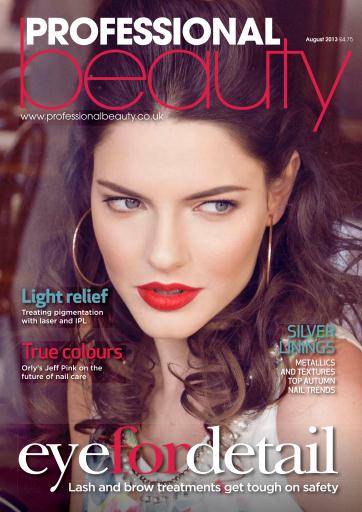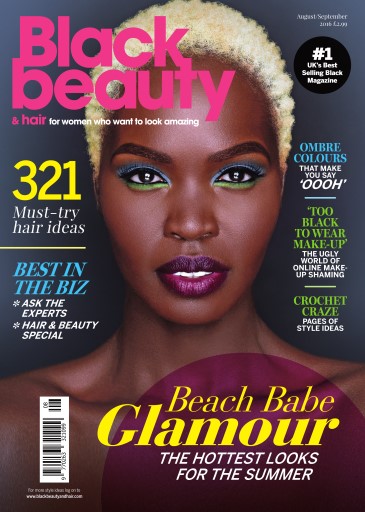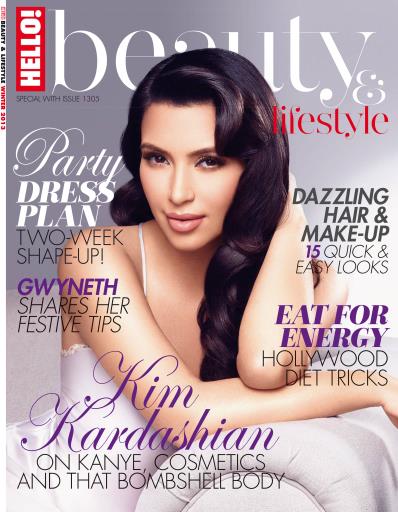Hello! I'm back again, this time analyzing the representation of "beauty-gurus" in the media... Here's what I found:
Within my project, I will represent people who enjoy makeup and beauty tips, also known as the makeup “gurus” group. In the media, especially in magazines, this group is usually women ages 15 to 25. Hence, the make-up and clothing that will be talked about will be colorful and bold, since younger people are often more open to push their boundaries and try out new products. Furthermore, since young adults today are increasingly present in social media platforms, the magazine will incorporate pieces of these types of media, such as interviews with and recommendations from popular social media make-up gurus like Kylie Jenner and Jeffree Star.
Most beauty magazines also show women as successful and beautiful only if they wear certain clothes or makeup that are “in style.” Because of this, women who do not like these trends or cannot afford these products may feel inferior if they do not wear these looks. Furthermore, an issue I might want to represent in my magazine is the pressure for women to “look good” and wear makeup to fit in with the “norms” for girls. My magazine would not just recommend makeup that a woman should wear but makeup that a woman can wear only if she wants to, without any pressure from society. In other words, this beauty magazine would encourage women to embrace their natural, raw beauty, being their own authentic self with no filters or cloaks to mask their real beauty.
Within the media, this group is already represented in the social media platform of YouTube; for example, in the channel “Nikkie Tutorials”, a YouTube channel with a whopping 11 million subscribers. Nikkie is the epitome of “makeup gurus”, as she is in her mid-20s and uploads weekly videos of makeup tutorials and makeup product reviews. Nikkie also frequently wears bold makeup looks, using rainbow eyeshadow and bold lipsticks, unafraid to challenge her viewers' expectations. Uploading frequently to additional social media platforms such as Instagram and Twitter, the trendy YouTuber creates original looks never done before and uses her platforms to advertise and represent the “makeup guru” life, marketing towards young adult women. Another example of a type of media that represents “young beauty specialists” is Allure Magazine. This magazine introduces new looks and styles for women, especially makeup looks; the editors exhibit celebrities’ best makeup looks, recommend products that will achieve the “no makeup makeup look”, and present tips for self-styling. Furthermore, this is the essence of content that represents the group of young women who enjoy beauty tips. The editors and models are all seen as fashion-forward examples-to-follow since they know about all of the trends that are most popular in celebrity looks and all the new products that women should try. In addition, these beauty gurus are represented as bold, outspoken women, since they are not afraid to criticize celebrity looks, and always look impeccable, with flashy clothing, hairstyles, and makeup.
Based on how “beauty-guru” women are represented, I do think that it is fair to assume they are very fashion-forward since they analyze celebrity styles and are knowledgeable about the newest trends. However, I do not believe that they should be represented as always looking flawless, wearing a layer of makeup and bearing anything but sweatpants. Consequently, these women are criticized if they have messy hair, wear no makeup, or wear casual clothes when they go out in public. These women should not be pressured by society to feel as if they always have to look good and fashionable to look beautiful. Instead, these beauty lovers should be allowed to go out in public wearing what they want to wear and learn that they are beautiful even if they don’t wear the newest trends or the best makeup. I would retain the characteristic that beauty gurus are extremely knowledgeable about makeup, hair, and fashion trends. However, I would challenge the characteristics that all beauty gurus have to be women and always have to look exemplary. Thus, I will promote raw, natural beauty with pictures showing all types of models wearing only what they want to wear. Most importantly, not only will girls be represented in my magazine, which is the usual target demographic for make-up and hair magazines, but also boys, as genders should not be limited by the media by being told what type of media they are supposed to consume. Hence, models, editors, and beauty gurus will be females and males, such as is already the case in media examples such as James Charles’s and Manny “Mua” Guiterrez’s YouTube channels.










